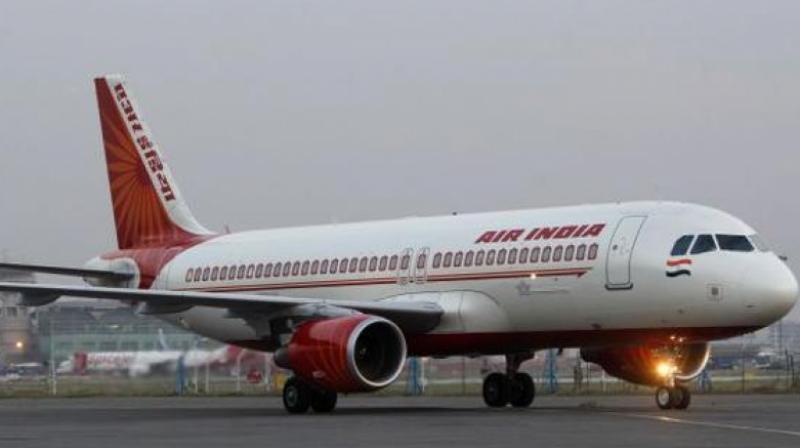Air India sale hits air pocket
The condition is that if the buyer is into aviation business, it will keep Air India's operations at arm's length.

New Delhi: The privatisation of loss-making Air India has hit a roadblock at the starting line-up itself as many prospective buyers are seeing red lines in the terms set by the government for the sale of the national carrier.
The condition is that if the buyer is into aviation business, it will keep Air India’s operations at arm’s length.
The condition makes the proposal unattractive for bidders like Tata Group, which was looking to merge or integrate its current operations with the national carrier after the takeover.
The business conglomerate already operates two airlines in domestic market in joint venture partnership with Singapore Airlines and Air Asia.
Operating a third airline separately at arm’s length with the other two carriers may not make much commercial sense.
“Somebody may file a PIL (public interest litigation) on operational integration of Tata Group’s existing JV airlines with that of Air India. These things need to be cleared by the government,” said an aviation policy expert wishing not to be named.
The other condition that has a grey area pertains to disqualification of a bidder if it is an erstwhile OCB (overseas corporate body) which is incorporated outside India and is under the adverse notice of the Reserve Bank of India (RBI).
The experts are unclear about its bearing on Jet Airways but said that the first thing that came to their mind after reading this term was of Jet Airways.
Tail Winds Ltd, an OCB based out of tax-haven Isle of Man, earlier held 79.99 per cent stake in Jet Airways.
Moreover, there has been controversy in the past over the ownership of Jet Airways with BJP leader Subramanian Swamy raising the issue.
Following a deal in 2012, Abu Dhabi-headquartered Etihad holds 24 per cent in Jet Airways while Naresh Goyal controls majority stake in the company.
The potential buyers are also not comfortable with the government keeping 24 per cent stake in the national carrier. They feel this will lead to unnecessary government interventions in decision making and day-to-day operations given its vast regulatory powers.
“The 24 per cent stake held by government is totally different from the same equity ownership by a private entity or individuals. No private airline would want government having such arrangement. Also, there is no clarity over exit plan of the government,” the official quoted above said.
Overall, industry watchers and experts said there would not be very strong response from private players. While a clutch of them could participate in the first round of bidding and submit EoIs they may walk out in the final round. They claimed that apart from slots in foreign countries there is hardly any factor that would woo the companies.
“Anybody acquiring Air India would most likely raise debt to finance the deal. But given the fact that financial markets and banking sector are quite depressing at the moment many prospective buyers could give it a miss,” said Mark Martin, founder and CEO at aviation advisory Martin Consulting.
Interestingly, the country’s largest private carrier IndiGo, one of the strongest contenders for Air India, last said it was walking out of the race to acquire the national carrier.

